4 Big Myths about Life Coaching | ep166
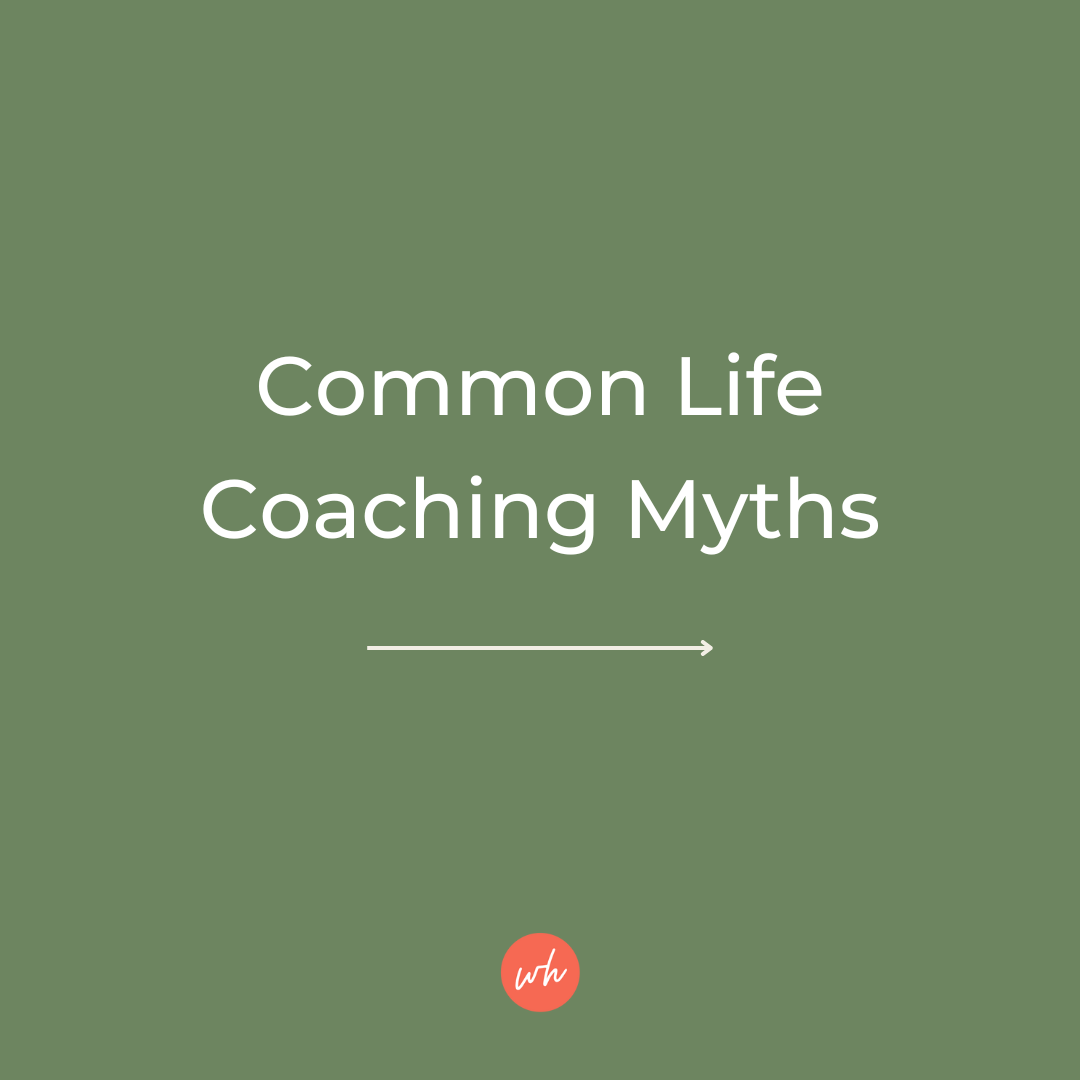
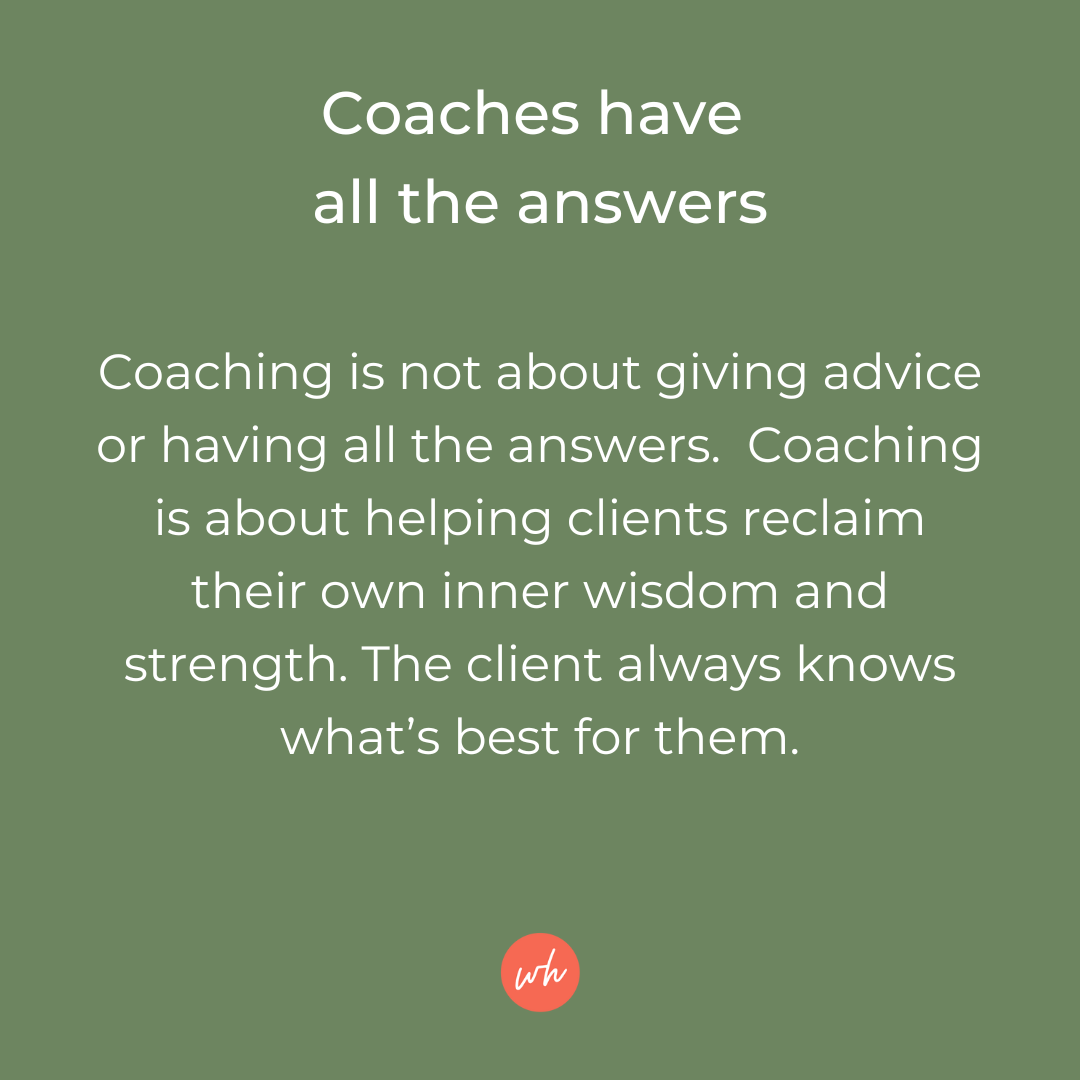
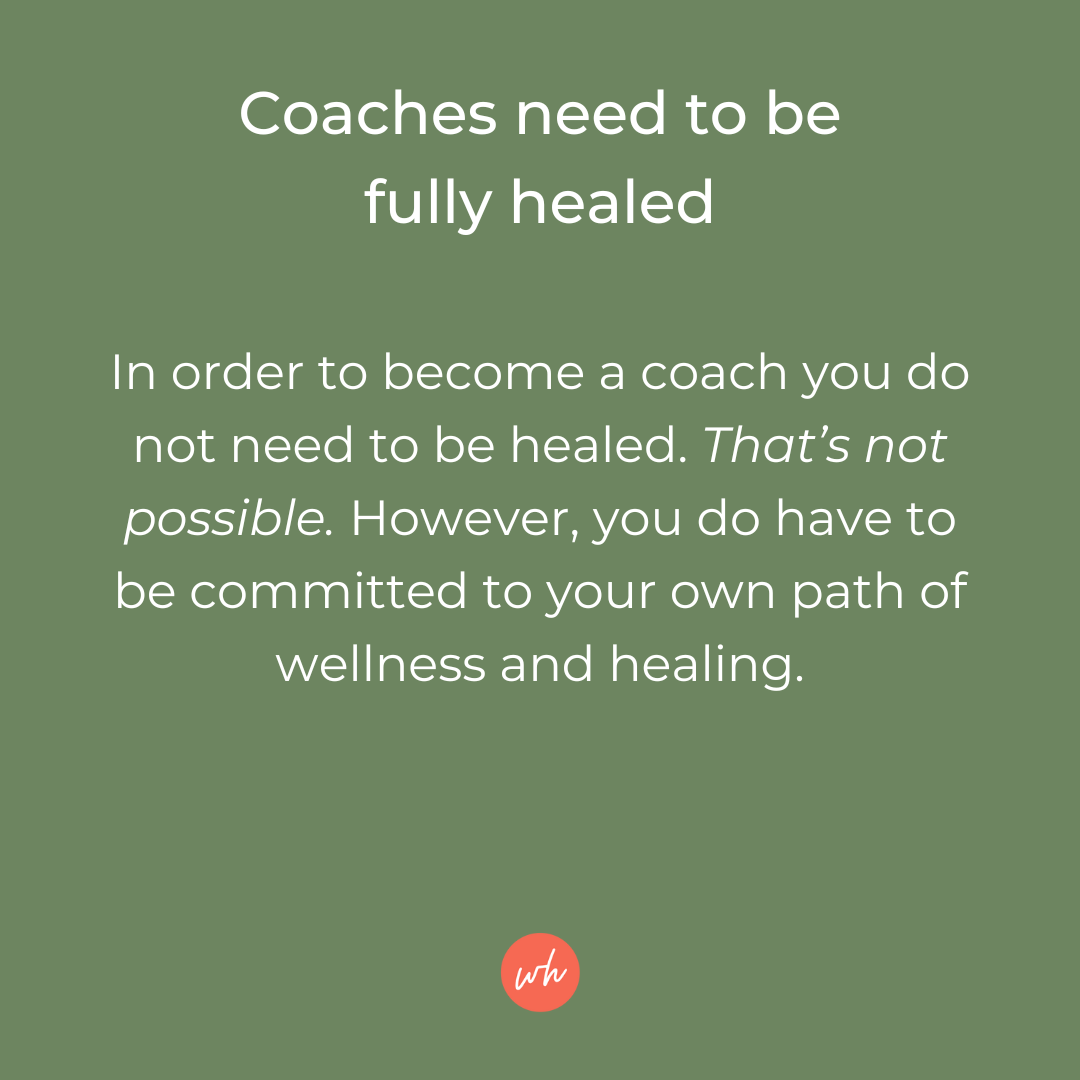
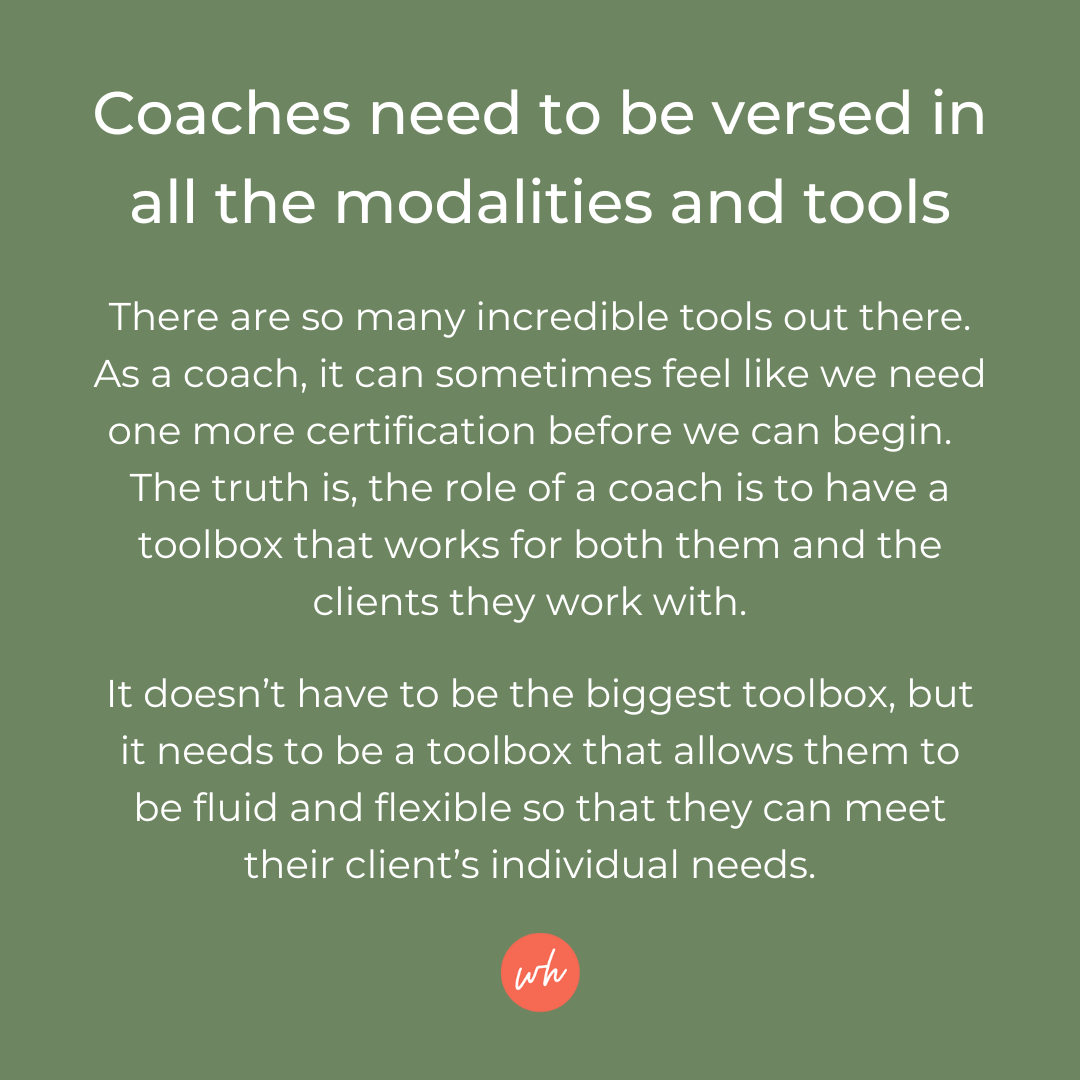
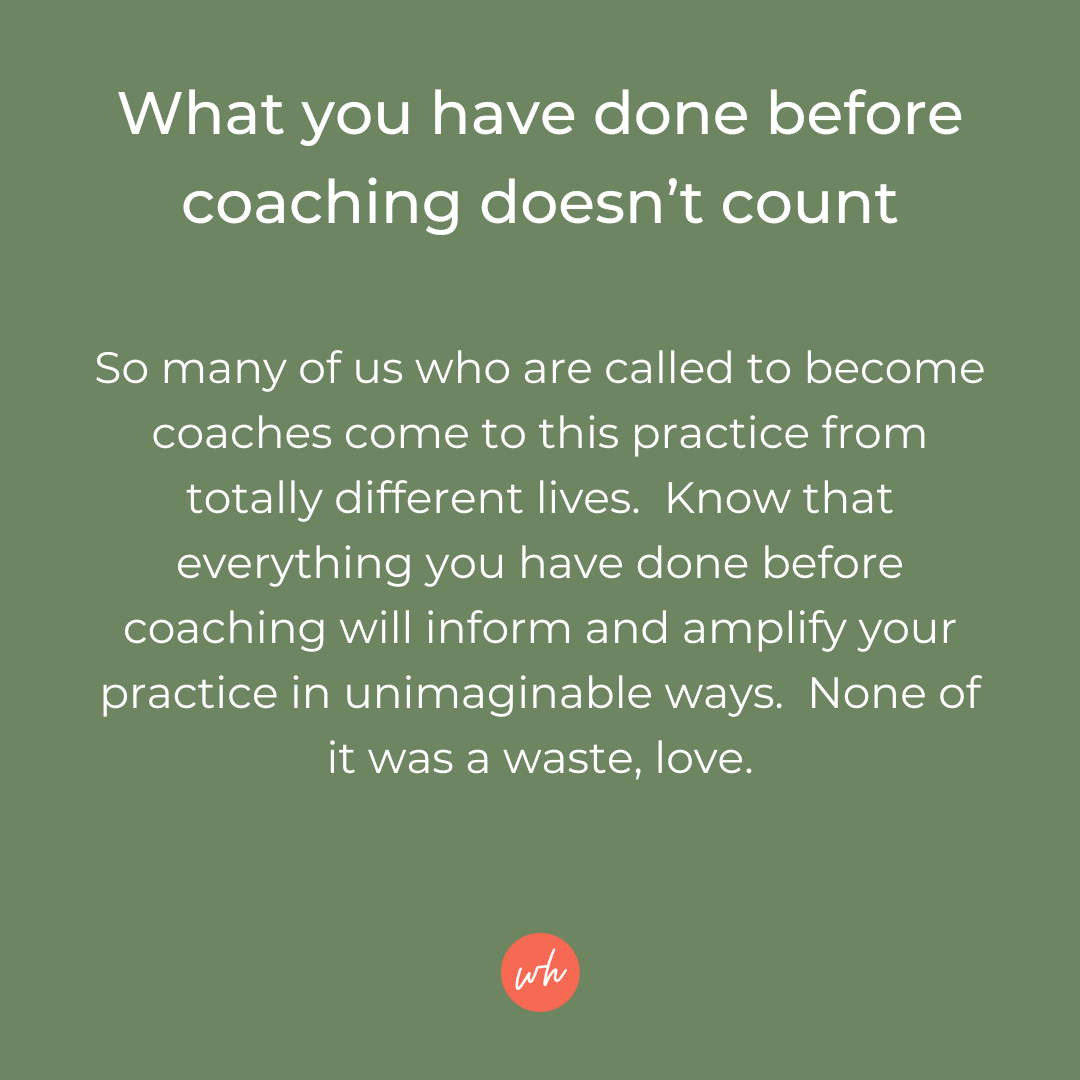
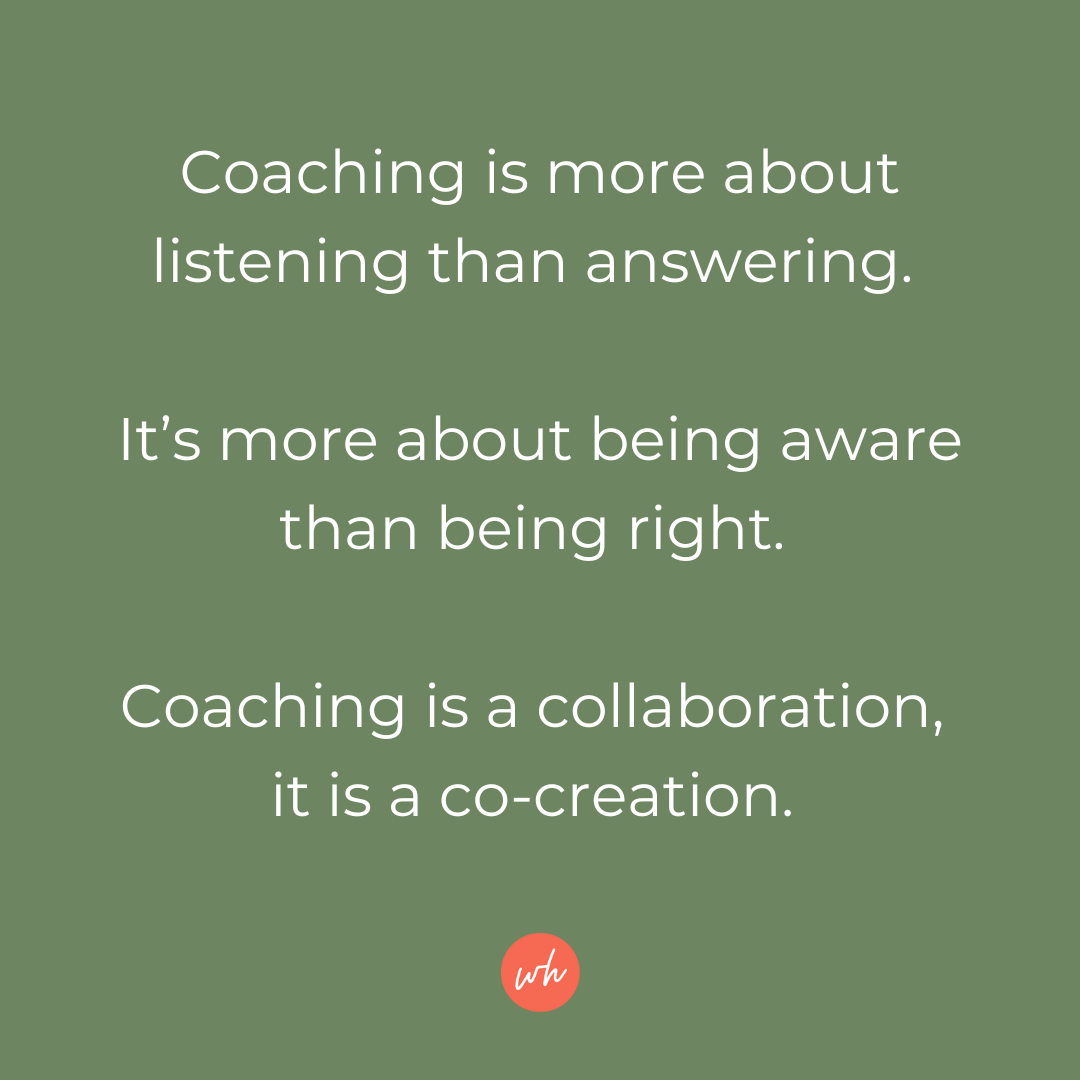
What is a life coach? What does a life coach actually do?
I know a lot of folks in this community are interested in becoming a coach or maybe working with a coach. If you found your way here, then you’re probably resonating with one of these, too.
After years of doing this work, I know there are A LOT of misconceptions about what a coach is and what a coach does. Heck, you may have been listening to my podcast for years and still don’t know what is I do exactly.
Today, we’re answering these burning questions and I believe it will be so helpful for those of you who are truly desiring to become a coach and feel worried that you just can’t do it for multiple reasons. I’m defining what coaching is and breaking down 4 of the biggest myths about coaching that I’ve become all too familiar with on this journey.
Before we dive in, I have a quick announcement!
I truly believe coaching is one of THE MOST powerful modalities to help facilitate change and transformation. When I was introduced to it, it completely changed my life.
But I know there are also some pretty big problems in the coaching world today.
There are negative stereotypes attached to “coach” and “coaching,” some of us have experienced pretty harmful practices, sleazy sales techniques, and grand promises, but love — that’s not what coaching really is.
This is why I created my 3-day workshop, Decolonized Coaching.
What we’ve come to know as “coaching” today is really a watered-down, toxic version of a centuries-old transformative modality. Coaches have always existed across all cultures and it’s time to bring back the sould and reclaim the true magic and essence of coaching.
If you’re ready to learn how to become a heart-centered coach, join me in Decolonized Coaching. We begin October 22nd.
Click here to learn more.
Let’s get into today’s topic.
What I have come to deeply understand is that those who are called to coach are actually already coaches
It’s true. If you have ever wanted to become a coach, then you my love are already a coach.
You are the person that people come to when they are struggling. When they are facing a challenge.
You are the person who people come to when they need to be seen and heard whether it’s friends, family, or random strangers you meet on the street. People feel compelled to share their story with you.
You are the person who holds space for those around you.
This is coaching.
In my program the Wholehearted Coaching Certification, I call all of the students coaches from Day One. Because they already are. The work we do in the certification is all about amplifying those inherent innate abilities.
Here is how I define coaching:
A coach is someone who can create a space in which others feel empowered and supported to heal, grow, and transform.
Coaching is the process in which a client learns to reclaim their own innate wisdom, fortitude, and gifts to create the unimaginable.
Coaching isn’t about telling others what to do. Coaching isn’t about knowing more than the client.
Coaching is about creating a space in which a client can realize how damn incredible, wise, and amazing they already are.
That to me is coaching, and especially coaching from a decolonized perspective.
As a coach, I am not teaching you anything new. I am helping you reclaim what you already have within.
Being a coach is about alchemy. It’s about taking different tools, ideas, and concepts and creating this beautiful space in which transformation can happen.
So, coaching isn’t…
being an empath
being a leader
being a problem solver
You can be each of this things, maybe all of these things and still be a wonderful coach. But these things are not synonymous with being a coach.
So, let’s get into those top 4 myths about being a life coach and becoming a life coach.
Myth #1: “A coach needs to know ALL the answers”
From Day One, being a coach is NOT about having all the answers. We are not solving anything for the people we have the privilege to work with.
Let’s look at and clear up some differences:
What Coaching Is:
Creating a container in which your client can come up with their own solutions and answers
Listening from a place of presence and acceptance
Being aware of yourself and your client
What Coaching Isn’t:
Having all the answers for your clients
Solving problems for people
Giving advice
Being right about everything
Telling people what’s best for them and their lives
In my certification program, we learn about tools like empowering questions, wholehearted listening, empathy, and support. But the wisdom is coming from the client.
The client already knows the answers. it’s our job as a coach to help them reclaim their own inner wisdom.
Offering advice, solving client problems, or advising them falls under mentorship or consulting. This is actually what we see a lot of well-known coaches doing. Popular examples include Tony Robbins, Gabby Berntein, and Iyanla Vanzant. Mentors are those who tell you what you need to do and that’s absolutely ok, but it’s not coaching.
What I have come to understand is that I will never know what is best for someone else. That is something only they can uncover. When I step out of the way, the solutions and ideas they discover are far more incredible than what I could have ever imagined.
Myth #2: “You need to be healed in order to become a coach”
First off, that’s just impossible, love.
No one is fully healed. We are all on this journey of healing throughout life.
However, you do have to be committed to your path, your journey of wellness and healing. This is where a lot of coaches can cause harm as they’ll end up projecting their own issues and baggage onto their clients.
The most incredible coaches and facilitators and healers I have ever worked with are those that I found out were deeply invested in their own well being.
Myth #3: “A coach needs to know about every tool and practice”
The role of a coach is not to have the biggest box with all the tools, but to have a toolbox equipped with the tools that work for and resonate most with them. This will allow them to be fluid, flexible, and to meet each client’s individual needs.
Those who are called to coach understand what a big responsibility, a blessing, and a privilege this work is. It can also be a curse as the weight of that responsibility can weigh heavily on us leading us to think we need just one more degree or certification to coach properly.
When I find myself in this mentality of “I’m not enough for this,” and “I just need one more certification to be great!” I have to check in with myself and see if I am moving forward in something because I believe I am lacking or because this next thing genuinely interests me.
There is no way you can be equipped in everything under the sun. Add to your toolbox in the ways that will benefit you and your clients. And also, be willing to using more than one tool. Some coaching certifications focus heavily on just one tool and while some are really great, they can also cause a lot of harm by disregarding a client’s special circumstance, their identity, their lived experience, or the oppressive systems we live in.
Myth #4: What you do before coaching doesn’t apply
So many of us who are called to become a life coach come to this work from completely different lives.
I used to be an opera singer! I have colleagues who worked in law, marketing, and visual arts.
It breaks my heart when I hear wonderful folks who want to become coaches say they can’t because their current or former career is so disparate. They think they need to have a background in therapy or social work.
I get it, love. Coaching is such important and tender work, but it doesn’t matter what you have done before this.
You can be a coach.
The only thing that matters is that you want to become a coach.
Everything you have done leading up to this moment will inform your practice whether it’s obvious or not. My background as an opera singer is present each and every day as a coach. Singing taught me how to be in front of people. It gave me skills in improvising. I can read the energy of a room, a space, a person.
Every part of you, your history, your background, your everything will inform, amplify, and magnify your work as a coach.
There you have it, the 4 top myths about being a life coach and coaching. If this resonates with you and if you are someone who wants to become a coach, explore it, love.
You can dive even deeper in my upcoming workshop, Decolonized Coaching — a FREE 3-day event where you’ll learn all about heart-centered coaching from a decolonized lens. We start on October 22nd. Click here to learn more.
Tune into this week’s podcast episode — 166 | 4 Big Myths about Life Coaching — to hear the full conversation.
Did you know that each podcast episode comes with free guided journal prompts?
If you want to be in the know and get each Mindset Monday straight to your inbox complete with journal prompts to take you even further, get on my email list.
About your host, Shirin Eskandani
Hi, love! I’m Shirin.
Coach, speaker, writer, and life alchemist.
I teach you how to listen to your intuition again, tune out all the BS, and let your heart lead the way.
Because once you strengthen your inner GPS, decisions become easier, boundaries become clearer, and belly laughs become a daily thing.
A LITTLE BIT ABOUT ME:
I’m a certified life coach (accredited through the International Coach Federation)
My husband and I met on Instagram and we live in Brooklyn, NY with our plant babies
I have a masters degree in Music and was a professional opera singer for twelve years. I worked all over the world singing on stage at Carnegie Hall and the Metropolitan Opera (more on that later…).
I believe in the woo just as much as I do the work (internal and external). No amount of crystals and affirmations will make up for a lack of a healthy mindset and aligned action.
I love all the Real Housewives franchises. Don’t make me choose one… seriously, don’t.





